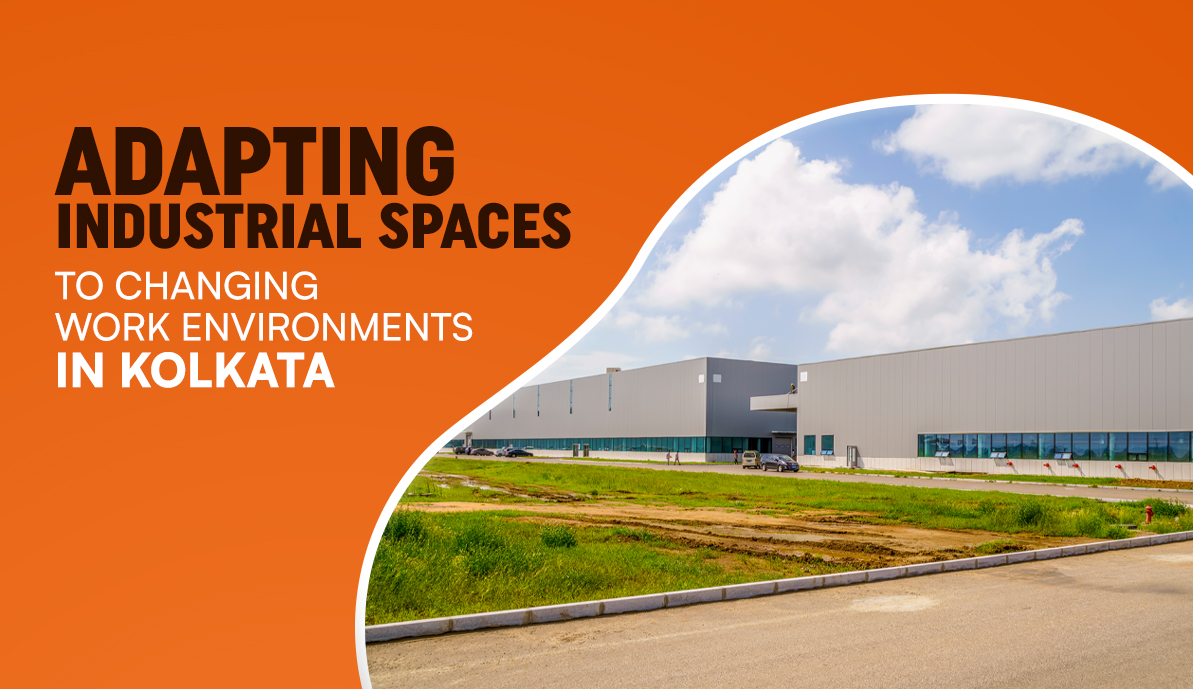In the global landscape, changing work environments have spurred a transformation in how businesses view and utilize industrial spaces. As industries adapt to flexible work arrangements, technological advancements, and the rising trend of remote work, the demand for the industrial space in Kolkata undergoes a noteworthy shift.
This blog delves into the dynamic interplay between the changing nature of work and the industrial sector in Kolkata. We will explore the growing need for flexible workspaces, the integration of advanced technologies, and how developers are reshaping industrial real estate to align with the demands of a workforce navigating the currents of change.
The Shift Towards Flexible Workspaces
There’s a noticeable shift towards flexible workspaces, reflecting a broader trend in the global market. Businesses are increasingly seeking adaptable floor plans and multi-functional spaces that can accommodate diverse work needs. This flexibility allows for efficient space utilization and caters to evolving business requirements. For instance, warehouses are being redesigned to include office spaces or collaborative areas, offering a blend of functions within a single facility. One such example is the transformation of traditional manufacturing units into hybrid spaces that combine production areas with office zones for administrative tasks.
Additionally, some businesses in Kolkata are opting for modular setups that can easily be reconfigured to suit changing needs. This shift towards flexible workspaces in industrial settings underscores the importance of adaptability and responsiveness in meeting the demands of modern businesses.
Technology-Driven Solutions in Industrial Spaces
Technology is revolutionizing the traditional workspace in Kolkata, driving efficiency and productivity to new heights. The integration of cutting-edge technologies like the Internet of Things (IoT), automation, and advanced connectivity has become a cornerstone for modern industrial development. IoT sensors are now employed to monitor equipment health and optimize operations, reducing downtime and maintenance costs.
Automation, through robotics and smart machinery, streamlines production processes, enhancing precision and speed. The advent of advanced connectivity ensures seamless communication between different facets of the industrial setup, fostering a synchronized and responsive work environment. These technological advancements not only elevate the overall efficiency of the industrial space in Kolkata, but also pave the way for innovation. It ensures that businesses can stay competitive in the fast-paced digital era. The marriage of technology and industry in Kolkata reflects a commitment to staying at the forefront of progress in the evolving landscape of industrial workspaces.
Adaptive Design and Infrastructure
Adaptive design and infrastructure play a pivotal role in shaping industrial spaces in Kolkata, seamlessly blending traditional and modern work setups.
-
Flexibility in Layouts
Modern industrial real estate is adopting versatile layouts that can accommodate a range of functions. Adaptable floor plans allow businesses to modify their workspace configurations based on evolving needs, promoting versatility.
-
Multi-Functional Spaces
The integration of multi-functional spaces is becoming a norm, enabling the coexistence of manufacturing areas, offices, and collaborative zones within the same facility. This approach optimizes space usage and enhances overall functionality.
-
Sustainability Integration
Adaptive design in Kolkata’s industrial spaces extends to sustainable infrastructure practices. Emphasis on eco-friendly construction materials, energy-efficient systems, and waste reduction measures aligns industrial real estate with environmentally conscious principles. These adaptations not only promote corporate responsibility but also resonate with the growing global focus on sustainability.
-
Case Studies in Kolkata
Noteworthy examples in Kolkata include warehouses transforming into dynamic work environments. These spaces are designed to house not only manufacturing processes but also collaborative workspaces, meeting rooms, and recreational areas. Such adaptive designs cater to the diverse needs of businesses, fostering a harmonious blend of traditional and contemporary work setups.
Collaborative Work Environments in Industrial Settings
Collaborative work environments in Kolkata’s industrial settings prioritize design elements that cultivate teamwork and synergy. The integration of open-floor layouts encourages spontaneous interactions among employees, fostering a sense of community. Strategically placed communal areas and shared spaces facilitate informal discussions and idea exchange, promoting collaboration. Inclusive meeting spaces equipped with advanced communication tools further enhance teamwork, ensuring seamless collaboration between different departments. These design elements contribute to a dynamic and cooperative industrial setting, where the physical workspace actively supports and enhances collaborative efforts among employees and teams.
Wrapping Up
The industrial space in Kolkata dynamically responds to evolving work landscapes. Its recurring theme of adaptability and flexibility emerges as a cornerstone for success.
The importance of a workspace’s ability to evolve seamlessly with the evolving needs of businesses cannot be overstated. Hence, the collaborative efforts in Kolkata underscore a future-focused approach, where industrial spaces not only meet current requirements but actively prepare for the uncharted territories of tomorrow.



0 Comments